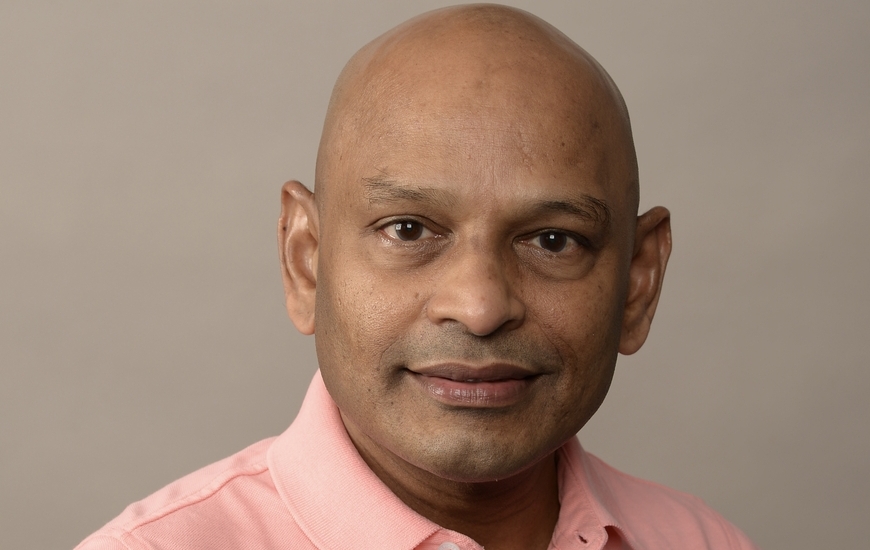Fourth episode of the special dedicated to the national conference AIMAT - the Italian Association of Materials Engineering - in Catania, at the Plaza Hotel, until 1st June. We interviewed Professor Seeram Ramakrishna, FREng, Everest Chair, who is a world-renowned poly-disciplinary scholar at the National University of Singapore, NUS.
What are the future directions of materials?
«For millennia, thousands of materials have been sourced | synthesized | developed and employed in the service of humans. Economies around the world depend on their sourcing, processing and manufacturing into multitude of products. However, the Anthropocene activities are now exceeding the planetary boundaries, and improved materials are needed for unique performance demanding applications, thus necessitating us to reimagine the materials, and products and services based on them. Moreover, the science advances in recent years enable us to imagine future directions of materials more confidently in terms of a) Sustainable | Low-carbon Materials, and b) Intelligent Materials. Sustainable | Low-carbon materials foster a healthy living environment via circular economy and reduction of associated greenhouse gas (GHG) emissions, wastage, and resources depletion. They are purposely designed | selected with lower environmental footprint and social costs, and higher circularity while satisfying the cost as well as functional requirements. In other words, the sustainable materials are friendly to the Earth’s ecosystem and human health with high circularity performance. Intelligent materials mimic the intelligence attribute of human brain, which is an emergent function | ability of certain networked neuronal processes involving memory and learning. Intelligent materials are capable of sensing and processing external signals as well as internally generated signals, and produce optimized responses | behaviours. Shape memory materials, smart materials, piezoelectric materials, photoelectric materials, thermoelectric materials, intelligent hydrogels, and cells| microorganisms incorporated living materials are examples to name a few».
How to make the materials which we use every day completely sustainable?
«All materials need to be assessed objectively using life cycle assessment and circularity assessment tools so as to select, design, and produce more sustainable materials».
Do you believe in biocomposites?
«Yes, as they offer opportunities for sustainable development. Nature around us is fully of biocomposites».
What are talking about when we talk about smart composites? And what are their applications?
«They are purposely designed materials to sense and respond. Aircraft frames, bridges, structures, and biomedical devices are a few examples».
What are morphing materials and what are their possible applications?
«They are a group of materials designed to morph and shape shift in response to external inducements. Biomedical implants and devices, cleaning robots, and sensors and actuators are a few examples».
In your opinion, composites could be the next generation materials for mass production cars?
«Absolutely yes. They help to light-weight the transport systems which includes cars».
What role will have the challenge of materials in the future of sustainability?
«Materials are linked to substantial emissions. Hence ‘materials’ need to be made more sustainable. Key challenges in doing so are a) cost, b) scalable material process innovations and technologies, and c) designing materials for perpetual circularity, which is very challenging».
WHO IS
Professor Seeram Ramakrishna, FREng, Everest Chair is a world-renowned poly-disciplinary scholar at the National University of Singapore, NUS. He is a leading voice in Singapore’s sustainability development advocacy. He advocates materials circular economy solutions to decarbonize economies. He is an elected Fellow of American Association for Advancement of Science (AAAS); UK Royal Academy of Engineering (FREng); Singapore Academy of Engineering; Indian National Academy of Engineering; and ASEAN Academy of Engineering and Technology. He is also an elected Fellow of ASM International, ASME, FBSE, and AIMBE, USA; a n d IMechE and IoM3, UK.
His publications to date have received 179 H-index and 160,123 citations. He is named among the World’s Most Influential Minds (Thomson Reuters); and the Top 1% Highly Cited Researchers in cross-field (Clarivate Analytics). Stanford University C- score ranks him among top six impactful researchers of the world in materials, biomedical engineering, and enabling & strategic technologies. He is the Director of Centre for Nanotechnology and Sustainability. He served as NUS Dean of Engineering and University Vice-President of Research Strategy, which are ranked among the world’s top ten and twenty, respectively.
-

-
31 May 2023






















